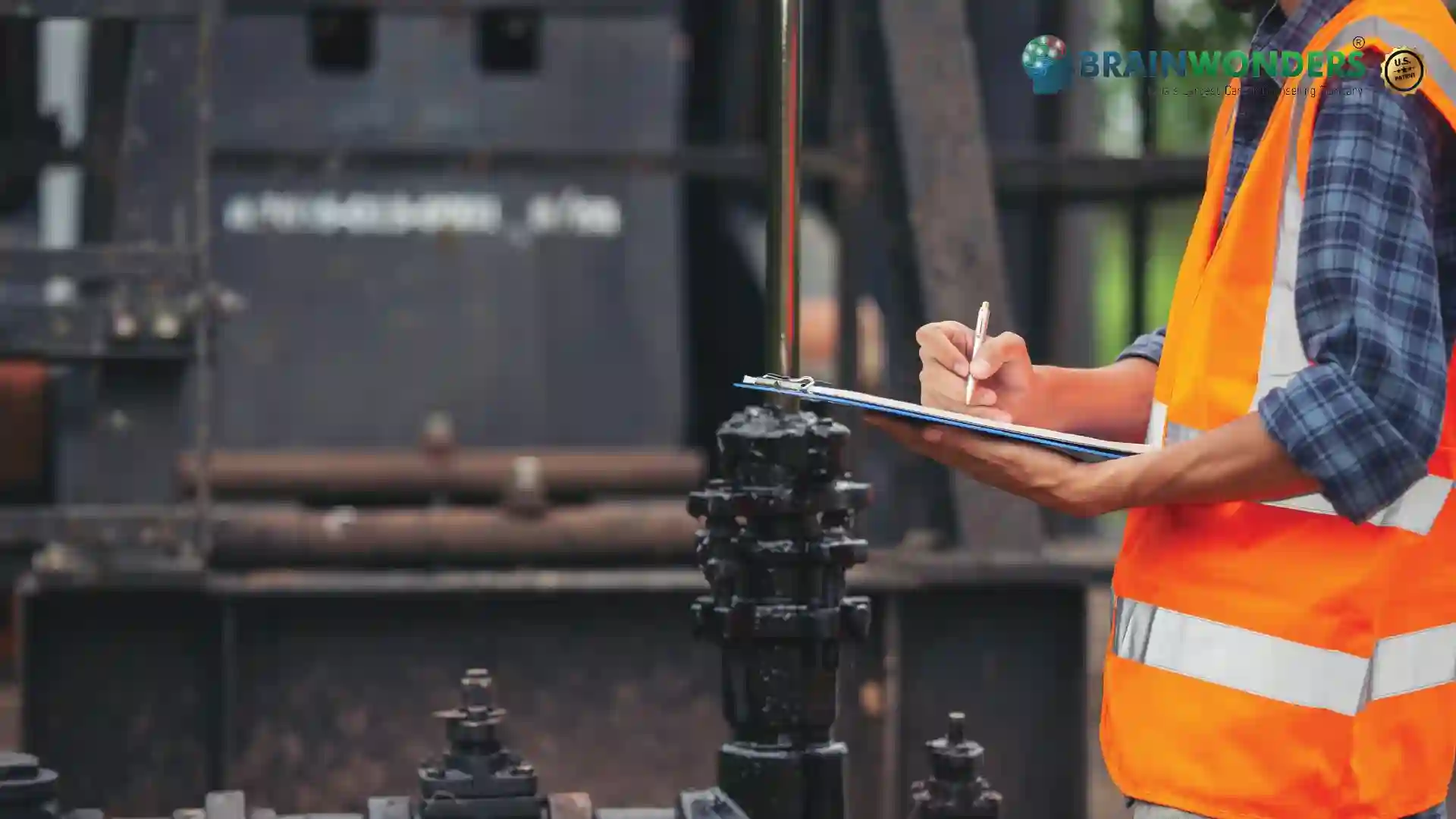How to become a Petroleum Engineer
Overview, Courses, Exam, Colleges, Pathways, Salary

Overview
Who is Petroleum Engineer ?
Petroleum engineering is a branch of engineering focused on locating and extracting petroleum resources from underground reservoirs and wells. Petroleum engineers are tasked with maintaining affordable access to petroleum resources while being mindful of the environmental impact of the same. They are also developing ways to inject substances into oil reserves such as water, chemicals, gases, or steam. Researching new sources of petroleum resources and computer-aided modelling the best methods of extracting the same is also a part of their job. They are involved in the design and development of the methods employed to extract hydrocarbon deposits such as crude oil or natural gas from below the earth’s surface. They work on locating and assessing such resources and the planning and extraction process management. They are also involved in storing and transporting these resources upon procurement. With the input from geologists and scientists, they work on developing safe, effective drilling methods to minimize/prevent the risks of damage to the environment and the people. Their work also involves ensuring that petroleum products are extracted in compliance with the best industry practices and accessible and affordable for the consumers.
Typical day at work
What does Petroleum Engineer do?
The roles and responsibilities of a Petroleum Engineer include:
- Estimate the economic feasibility and production ability of prospective drilling sites by evaluating the geophysical site, ascertain the potential risks associated with extraction procedures in the specific area
- Strategize and construct the bore holes and oil wells for locating and extracting resources
- Recognize the best methods and equipment to extract the deposits, including the temperature and pressure specifications required to treat it
- Monitor and oversee the assessment of wells, well modification/stimulation programs
- Supervise and review plans to ensure utmost recovery of oil and gas
- Assessing data to inform the further procedures to improve production and produce suggestions for well placement, and enhance or change the equipment
- Monitor the rate of production, and to enhance production, plan rework procedures
- Working with collaborators to settle issues in operations, design, testing, and research
- Overseeing and managing the installation of the mining and oil field equipment and its maintenance
- Maintaining documentation regarding the drilling and production operations
- Collecting and analyzing the samples of the resources for evaluating the quality and quantity, and depth at which the resource is located
- Safeguarding recovery process of the equipment after use and overseeing the safe un-installation of the same and waste removal processes
- Ensuring the health and safety procedures are being followed on the sites
Abilities and Aptitude needed
What are the skills, abilities & aptitude needed to become Petroleum Engineer?
Here are the essential abilities, skills, and aptitudes needed to become a Petroleum Engineer:
- Technical Proficiency: A strong foundation in engineering principles, mathematics, and physical sciences is essential for analysing complex reservoir and drilling data.
- Geological Understanding: Familiarity with geology and subsurface formations helps identify potential oil and gas reservoirs and optimise drilling locations.
- Reservoir Engineering: Expertise in reservoir simulation, fluid flow dynamics, and pressure analysis is crucial for maximising resource recovery.
- Drilling Techniques: Knowledge of drilling processes, equipment, and techniques is vital for efficient and safe well construction.
- Production Optimisation: Understanding production methods, artificial lift systems, and production enhancement techniques are important for maximising well output.
- Data Analysis: Proficiency in data interpretation, statistical analysis, and computer modelling is essential for assessing reservoir performance.
- Problem-Solving Skills: Petroleum Engineers tackle complex challenges related to drilling efficiency, production decline, and reservoir management.
- Attention to Detail: Precise calculations, well planning, and equipment selection require meticulous attention to detail to ensure safe and successful operations.
- Project Management: Effective planning, scheduling, and resource allocation are essential for successful drilling and production projects.
- Collaboration and Teamwork: Petroleum Engineers work closely with geologists, geophysicists, technicians, and other professionals in interdisciplinary teams.
- Communication Skills: Clear and effective communication is necessary for conveying technical information to colleagues, clients, and stakeholders.
- Safety Consciousness: Safety protocols, hazard awareness, and risk assessment are critical to ensuring a safe working environment.
- Regulatory Knowledge: Familiarity with industry regulations, environmental standards, and permitting processes is essential for compliance.
- Adaptability: The oil and gas industry is dynamic, requiring the ability to adapt to changing technologies, market conditions, and regulations.
- Critical Thinking: Evaluating complex reservoir and drilling challenges requires logical reasoning and critical thinking skills.
- Creativity and Innovation: Developing novel solutions to optimise production and enhance recovery demands creative problem-solving.
- Ethical Integrity: Upholding ethical standards, integrity, and responsible resource management are integral to the profession.
- Time Management: Efficiently managing tasks, projects, and deadlines is important for meeting operational and production targets.
- Environmental Awareness: Recognising and mitigating potential environmental impacts of oil and gas operations is crucial.
- Continuous Learning: Staying updated on industry trends, technological advancements, and best practices is essential for career growth.
- Field Work Adaptation: Petroleum Engineers often work in remote or challenging field environments, requiring adaptability and resilience.
- Mathematical Modeling: Proficiency in mathematical modelling tools and software is essential for reservoir simulation and data analysis.
- Leadership Skills: Advancing in the field may involve leading teams, managing projects, and making strategic decisions.
- Global Perspective: Petroleum Engineers may work on international projects, requiring an understanding of global energy markets and regulations.
Salary
Salary for Petroleum Engineer?
Salary of a Petroleum Engineers is as follows :
- Minimum Monthly Salary: Entry-level Petroleum Engineers may earn a minimum monthly salary ranging from INR 30,000 to INR 50,000. These are typically individuals who have recently graduated and are beginning their careers in petroleum engineering.
- Maximum Monthly Salary: Experienced and senior Petroleum Engineers with several years of experience, advanced degrees, and specialized expertise may earn anywhere from INR 80,000 to INR 1,50,000 or more monthly. Petroleum Engineers working in high-demand sectors such as offshore drilling, reservoir management, or enhanced oil recovery may have higher earning potential.
- Annual Salary: The annual salary for entry-level or junior Petroleum Engineers could be around INR 4,00,000 to INR 6,00,000. As Petroleum Engineers gain more experience, work on complex projects, and take on leadership roles, their annual income can increase from approximately INR 8,00,000 to INR 15,00,000 or higher.
- Highest Paying Jobs and Scope: Petroleum Engineers involved in offshore drilling, reservoir engineering, and advanced exploration techniques may have better salary prospects. Specialized roles such as drilling engineers, production optimization experts, and experts in unconventional resources like shale gas or tight oil may also command higher salaries. With the global demand for energy and the need for efficient extraction techniques, there is a continuous demand for skilled Petroleum Engineers in India and around the world. As the energy industry evolves, Petroleum Engineers who stay updated with technological advancements and innovative practices will likely have promising career growth opportunities.
Pathways
How to become an Petroleum Engineer?
Entrance Exam
Entrance Exam for Petroleum Engineer ?
Courses
Which course I can pursue?
Best Colleges
Which are the best colleges to attend to become an Petroleum Engineer?
Industries
Which Industries are open for Petroleum Engineer?
Petroleum Engineers are specialized professionals who play a crucial role in the exploration, extraction, and production of oil and gas resources. They are in demand across various industries that involve energy production, resource development, and environmental sustainability. Here are some industries where Petroleum Engineers can find opportunities:
- Oil and Gas Exploration Companies: Petroleum Engineers work directly in the oil and gas industry, focusing on drilling, reservoir engineering, and production optimization.
- Energy Companies: Energy companies involved in fossil fuel exploration and production require Petroleum Engineers to maximize resource recovery and operational efficiency.
- Oilfield Services Providers: Companies that offer drilling, well completion, and production services rely on Petroleum Engineers to design and manage these operations.
- Engineering and Consulting Firms: Petroleum Engineers provide expertise in reservoir modelling, simulation, and technical consulting for energy projects.
- Research and Development: Petroleum Engineers contribute to research institutions and technology companies, working on innovative methods for enhanced oil recovery and sustainable energy solutions.
- Environmental Protection Agencies: Environmental agencies hire Petroleum Engineers to ensure oil and gas operations adhere to environmental regulations and minimize ecological impacts.
- Renewable Energy Industry: As the energy landscape evolves, Petroleum Engineers may work on projects related to renewable energy sources like geothermal, solar, and wind power.
- Academia and Education: Petroleum Engineers can become educators, teaching future engineers about oil and gas exploration techniques and sustainable energy practices.
- Government and Regulatory Agencies: Petroleum Engineers contribute to energy policy development, resource management, and security initiatives.
- International Energy Companies: Petroleum Engineers may work for global energy corporations involved in exploration and production on an international scale.
- Petrochemical Industry: Petroleum Engineers contribute to designing and operating petrochemical plants that process crude oil into various chemicals and products.
- Investment and Finance: Petroleum Engineers provide technical insights to investors and financial institutions assessing energy projects and resource investments.
- Emergency Response and Crisis Management: Petroleum Engineers can be involved in emergency response planning and management for oil spills or other industrial accidents.
- Construction and Infrastructure: Petroleum Engineers may contribute to developing energy infrastructure, such as pipelines, refineries, and storage facilities.
- Mining and Extractive Industries: Petroleum Engineers may use their expertise in drilling and subsurface engineering in industries like mining and mineral extraction.
- Geological and Geophysical Services: Petroleum Engineers collaborate with geologists and geophysicists to analyze subsurface data and determine resource potential.
- Energy Trading and Commodities: Petroleum Engineers can provide technical insights to traders and commodity markets involved in energy trading.
- Consulting and Project Management: Petroleum Engineers offer specialized consulting services and project management for energy-related initiatives.
- Climate Change Mitigation: Petroleum Engineers may explore opportunities to reduce greenhouse gas emissions and promote sustainable energy practices.
- Infrastructure Development: Petroleum Engineers can contribute to developing energy-related infrastructure, including storage facilities, distribution networks, and transportation systems.
internship
Are there internships available for Petroleum Engineer?
Internships are valuable opportunities for aspiring Petroleum Engineers to gain hands-on experience, apply theoretical knowledge, and develop practical skills in the field. Here are some potential areas where Petroleum Engineering internships might be available:
- Oil and Gas Exploration Companies: Internships in exploration and production companies involve working on drilling rigs, well sites, and reservoir modelling.
- Oilfield Services Providers: Interning with service companies allows you to learn about drilling operations, well-completion techniques, and production optimization.
- Engineering and Co.nsulting Firms: Internships in these firms provide exposure to reservoir engineering, simulation software, and technical consulting for energy projects.
- Research and Development: Interning with research institutions or technology companies allows you to contribute to innovative projects related to enhanced oil recovery and sustainable energy solutions.
- Environmental Protection Agencies: Internships in environmental agencies focus on regulatory compliance, monitoring, and environmental impact assessment in oil and gas operations.
- Renewable Energy Industry: As the energy sector evolves, internships in renewable energy companies provide insights into emerging technologies and sustainable practices.
- Government and Regulatory Agencies: Interning with energy regulatory bodies involves learning about energy policies, resource management, and regulatory compliance.
- Petrochemical Industry: Internships in petrochemical companies offer exposure to downstream processes and chemical engineering applications.
- Energy Trading and Commodities: Interning in energy trading firms provides insights into the commodity markets and energy trading strategies.
- Construction and Infrastructure: Internships in construction companies involved in energy infrastructure projects offer experience in project management and site operations.
- Geological and Geophysical Services: Interning with geologists and geophysicists exposes you to subsurface data analysis and exploration techniques.
- Mining and Extractive Industries: Internships in mining companies may involve drilling and subsurface engineering for mineral extraction projects.
- Academic Institutions: Universities may offer internships within their petroleum engineering departments, assisting with research and educational initiatives.
- Oil and Gas Industry Associations: Interning with industry associations provides exposure to networking events, conferences, and policy discussions.
- Drilling and Rig Operations: Internships on drilling rigs provide firsthand experience in drilling processes, well maintenance, and safety protocols.
- Data Analysis and Simulation: Interning with companies specializing in data analysis or reservoir simulation software allows you to work on technical projects.
- Energy Startups: Internships with energy startups offer the chance to contribute to innovative projects and solutions in the energy sector.
- Health, Safety, and Environment (HSE): Internships in HSE departments focus on safety protocols, environmental compliance, and risk assessment.
- Geothermal and Alternative Energy Companies: Interning with companies working on geothermal or alternative energy projects provides exposure to sustainable energy practices.
- Refinery Operations: The internship offers insights into refining processes, product quality control, and operations management.
Career outlook
What does the future look like for Petroleum Engineer?
The work of petroleum engineers is vital to the economy since they ensure that the drilling process of extraction is safer for the environment, wildlife, and people. A Petroleum Engineer can work in the private and government sector. Specifically in petroleum and oil companies, gas companies, refineries, and research institutions. Typically, one can find a petroleum Engineer working as a full-time employee at laboratories and drilling sites. A job in this field can involve travelling to the target sites, ranging from mountains and deserts to high sea and low-temperature areas, to find sources of unused energy and resources. The nature of the job could require the individual to work for extended periods to adhere to the deadlines. Most often, aspiring petroleum engineers start as assistants to an experienced engineer before securing the position of supervisor, principal engineer, or management roles. Another option available to petroleum engineers is to work in the education sector, lending their expertise to teach students at a university or functioning as research directors.







